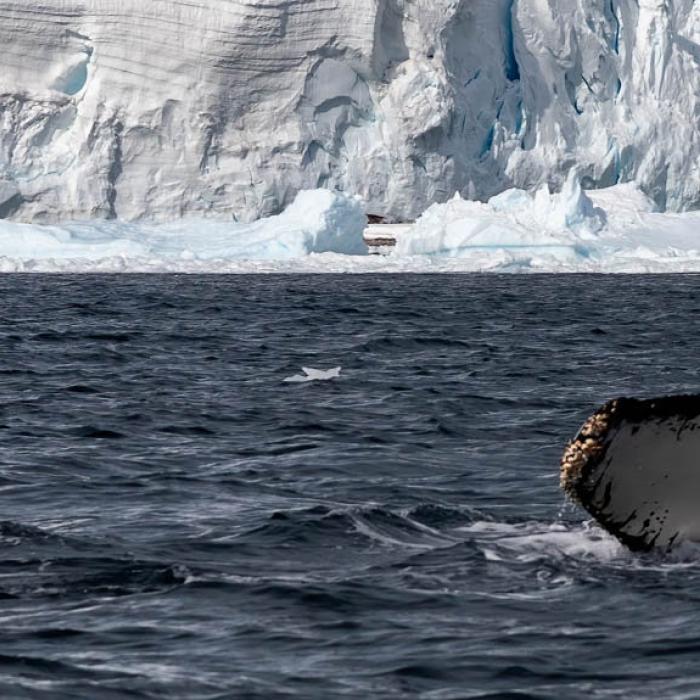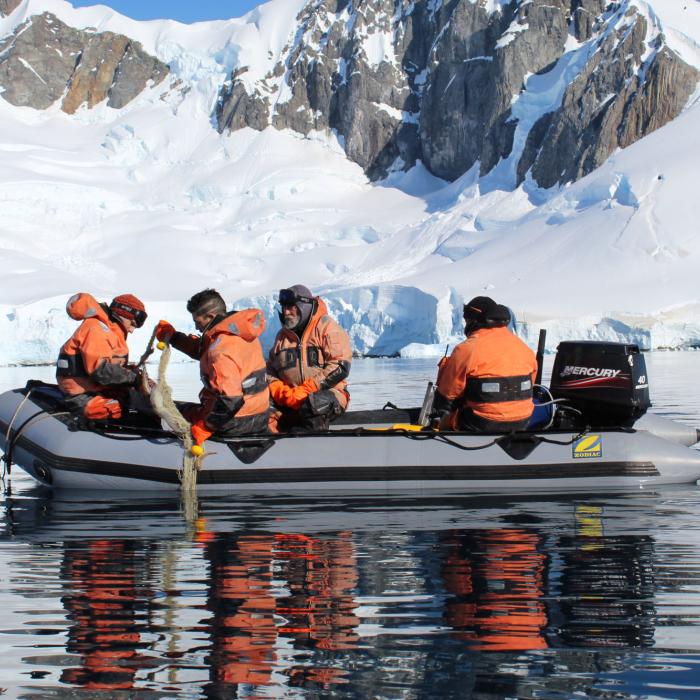
New Year’s Resolution fallen at the first hurdle? Antarctic Ambassadors has the answer...
It’s a story probably as old as time (well, almost) - you make a new year’s resolution on December 31, and by February it’s already long forgotten or simply fallen by the wayside.
The trick here is, rather than sign yourself up for an Everest of a pledge, create a series of small goals that add up to a larger impact. Each day, week or month you slowly chip away at your goal and before you know it – success!
If you’re looking for a new (manageable) pledge for 2021, we have the answer for you in five simple words: Refuse. Reduce. Reuse. Recycle. Rot
The aim is simple, introduce each of these small gestures into your everyday life and by the end of this year, you’ll have made a real impact. So, what do we mean by Refuse, Reduce, Reuse, Recycle and Rot? Here’s a breakdown of each stage and a few examples to get you started...
Refuse
This is probably the easiest of them all – simply say no to added waste in your life. Put a ‘no circulars (junk mail)’ sticker on your front door, say no to that plastic straw in your drink, or cutlery with your takeaway, don’t take plastic grocery bags when you’re doing you weekly shop and say no to freebies – you know, the free corporate mugs, pens, keychains. Reduce the clutter and inevitable waste simply by saying “no thank you!”
Did your workplace or friendship group do Secret Santa last Christmas? Why not suggest to your team that instead of gag gifts in 2021, you buy each other consumables? Last year the IAATO Secretariat donated to charities on behalf of their Secret Santa recipients. We each chose a charity we thought reflected the interests of our recipient and wrote them a message explaining why we chose that charity. Not only were our gifts zero waste, but we benefited charitable causes and we all felt extra warm and fuzzy on gift reveal day – win, win – and win!  Reduce
Reduce
Reduce your plastic waste by kissing goodbye to single-use items. Ditch the plastic toothbrush for a compostable bamboo one, replace make-up wipes with washable make-up removal pads, colourful plastic bottles of shampoo with package-free shampoo bars and plastic food wrap with a beeswax alternative.
Ladies, did you know approximately 1.5-2 billion menstrual items are flushed away each year – and that’s just in Britain* - with figures from the Marine Conservation Society showing that on average 4.8 pieces of menstrual waste are found per 100 meters of beach cleaned. Why not walk on by the tampons and pads at the store and instead purchase a menstrual cup, washable pads or period panties.
If these swaps will tax your wallet, that’s okay... just aim to replace your plastic products with sustainable ones as you run out. In the long-term, you’ll be helping to save the planet - and your purse too!  Reuse
Reuse
Reuse is the next natural step after reducing your plastic waste. Now, rather than reach for the plastic or paper bags at the checkout, use and reuse a backpack you already have, or a fabric shopping tote. Instead of plastic water bottles (50 billion of which are used and disposed of in the US each year**), buy a single reusable bottle and fill it up each day.
Ditch disposable razors and treat yourself to an electric razor or epilator – or ask for one for your birthday or Christmas. Swap matches for a refillable lighter, teabags (which are often sealed with glue) with tea leaves – which you can compost!
Do you have jars left over from peanut butter or pasta sauce? Why not reuse them? Take them to the farmers market and next time you’re buying something, ask them to fill up the jar – just don’t forget to weigh your empty jar first or that’ll be some expensive peanut butter!
Zero waste stores are popping up all over, now. Check to see if there’s one in your neighbourhood and you can happily take along all manner of spare containers, bottles and jars to fill up with produce.
As a general practice, extend the life of your possessions. If you want to get rid of it, why not see if someone else may want it? Join a ‘give and take Facebook group in your area and post on the page every time you have an item you’re looking to part with, or ask around in your friendship group. It’s worth noting that products labelled as ‘degradable’ or ‘biodegradable’ will degrade faster than regular plastic items but may still contain fossil fuels, thus creating microplastic particles. To effectively reduce waste, avoid using these alternative options and choose reusable items instead.  Recycle
Recycle
Recycling is an essential component of modern-day waste reduction. Recyclable materials include glass, paper, cardboard, metal, plastic, textiles, batteries, and some electronics. Composting is another form of recycling (see ‘Rot’ in our hierarchy).
If you don’t have your own kerbside trash can, you can recycle at your nearest household recycling center where your recyclables will be sorted, cleaned, and reprocessed into new materials destined for creating new products. Some supermarkets have a bin especially for batteries where you can drop off your dead ones.
If your optical prescription has run out or you’ve invested in a new pair of frames, it’s worth checking with your optician whether they recycle old glasses. Some opticians pass the frames onto charities that work with underprivileged households or impoverished nations. Your old spectacles could give someone else the gift of vision.  Rot
Rot
If you don’t have one already, is it time to invest in (or even better - build) a compost bin? Put your garden clippings, tea leaves, egg shells, other kitchen scraps and backyard chicken/rabbit poop on the compost heap to rot down naturally and give back to your garden.
Not got a garden? Why not ask your neighbours if they have a compost bin you can help fill. They might be grateful for the helping hand. Composting your kitchen and herbivorous pet waste will dramatically reduce your household waste, meaning fewer trash bags come bin day!
What we’re doing...
The International Association of Antarctica Tour Operators (IAATO) and the Association of Arctic Expedition Cruise Operators (AECO) have joined the United Nations Clean Seas campaign. Together with our respective members, we are working to systematically reduce the use of disposable plastics and other items. Operators are also involving guests in beach clean-ups worldwide and removing tons of marine litter every year. Through information to crew, staff and guests, and through sharing of best practices, IAATO and AECO are involved in raising awareness and involvement in safeguarding of the environment, at sea and on land.
When travelling to Antarctica, there are steps you can take to reduce the amount of plastic and other waste produced. Waste is removed from Antarctica by ship or air and taken to ports outside the region for disposal, but these may have limited facilities depending on their location.
Your IAATO operator is working towards reducing single-use plastic in its operations. You could support their efforts and help leave no lasting signs of your visit by reducing the number of disposable items you bring, use and dispose of during your trip. There are also steps you can take to stop litter and harmful plastics from ending up in the environment.
If you’re joining an Antarctic expedition in the future, please check out our Reducing Waste Visitor Guidelines.
Sources
*friendsoftheearth.uk
**habitsofwaste.org


